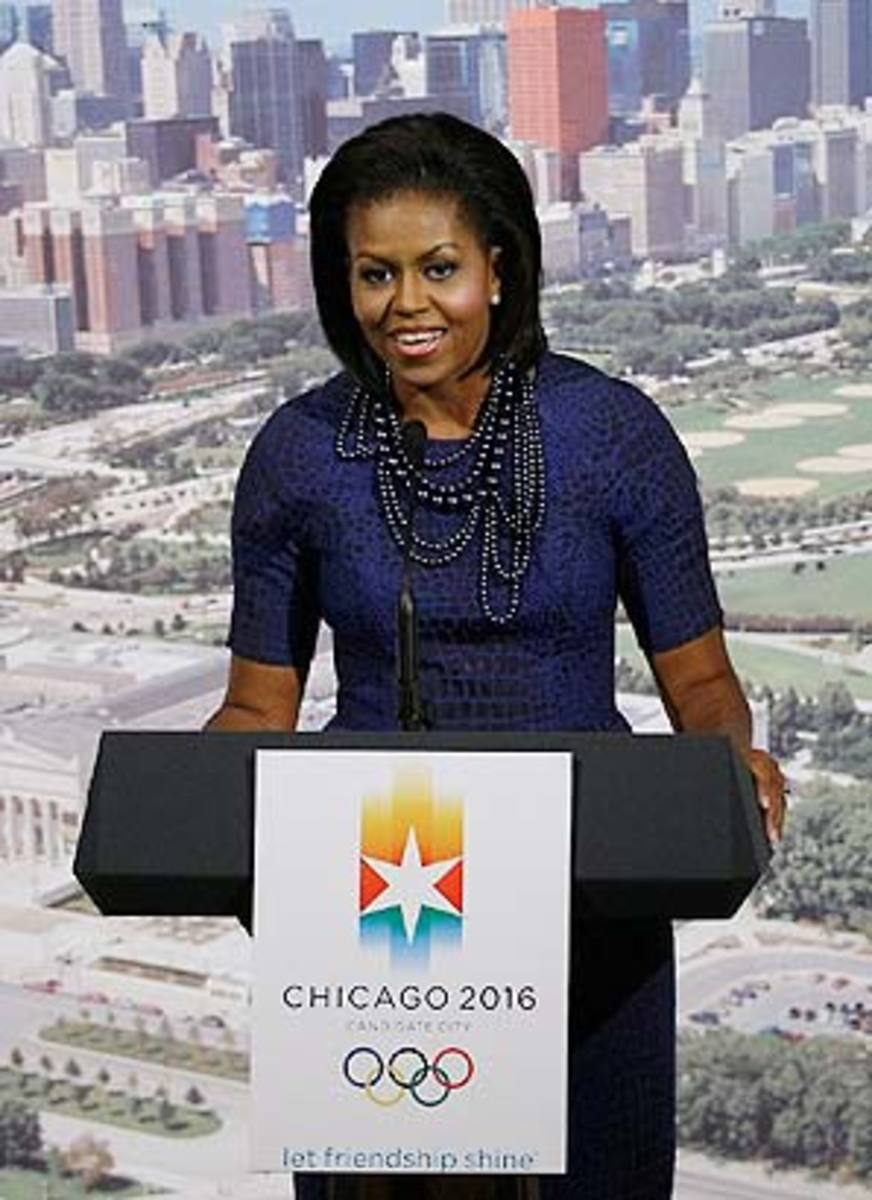Chicago rallies bid at 11th hour
With the decision expected around 12:30 Eastern time today, the Chicago bid was fortunate to draw on its star power that rallied the bid at the 11th hour. Though many IOC members have surely made up their minds where their votes will go, the in-person appeals inevitably decide a handful of votes. Given the close nature of this year's race to host the Games in 2016, those appeals may play a critical role for Chicago and fellow bidding cities Rio de Janeiro, Tokyo and Madrid.
Many of the discussions this week have focused on the heads-of-state appearing at the IOC session: Spain's King Juan Carlos, Brazil's President Luiz InácioLula da Silva and Japan's Prime Minister YukioHatoyama. Rio had seemingly been the city with the momentum heading into the final of the three-year campaign, but the word is that Chicago has been picking up support over the last 48 hours. One IOC member said he thought at least a third of the voters were undecided where their votes would go when they arrived in Denmark.
Chicago's presentation, the first of the four before the 100-plus IOC members, started slowly, though some key catchwords were sprinkled throughout. It lacked Rio's salient selling point that an Olympics in Brazil would be historic, the first such Games to go to South America.
Chicago's appeal hit on essential facts that were already contained in the city's bid document. The presentations are, after all, not only vehicles to emphasize strengths, but also tonics for easing the committee's varied concerns. For the Chicago bid, that included the issue of financial guarantees. Other cities can offer such guarantees because of dedicated government support. U.S. bids are largely privately financed and therefore carry fiscal risks. Bob Ctvrtlik, one of the three U.S. members on the IOC --- he is ineligible to vote as long as Chicago remains in the race -- highlighted what he called "commitments by our corporate community and our government to deliver resources ... like never before."
The committee members surely had questions about the iffy relationship between the USOC and its partners and the perceived arrogance of U.S. Olympic interests. "The Olympic movement and U.S. will move shoulder to shoulder to an Olympic mission," Ctvrtlik insisted. Chicago bid chairman Pat Ryan then told members: "No U.S. bid city has ever had such unified support, encompassing [three branches] of government ... For the next seven years, we'll focus exclusively on being your Olympic partner ... I humbly submit Chicago would be the right partner for the Olympic movement right now." Note the words "humbly" and "partner."
Chicago 2016 Operations Director Doug Arnot smartly addressed the IOC members in a combination of English and French, the two official languages of the IOC. "It's wonderful to be at the finish line," Arnot began in French. "We've listed. We've learned and we've committed ourselves." Later Arnot told SI, "It was important for all of us to show the committee how we could welcome the world and important for us to show respect to the International Olympic Committee."
Unlike Rio's subsequent presentation video, which highlighted the city itself as destination site, Chicago's video showcased the city's children speaking and playing games. The site of women in Muslim headdress playing basketball was especially effective.
But the star of the presentation was the First Lady, the speaker whose emotional appeal resonated in what was frankly an otherwise unremarkable presentation. She arrived in Copenhagen on Wednesday and has spent the time since giving a high-profile pitch for her hometown. "I was born and raised on Chicago's south side," she said during the presentation. "Ours was a neighborhood of working families. Sports are what bought our communities together. We picked sides based not on who you were but on what you could bring to the games."
Michelle Obama then told the story of her father, who battled multiple sclerosis beginning in his 30s. "Some of my best memories sitting on dad's lap cheering on Olga [Korbut], Nadia [Comaneci] and Carl Lewis," she said. "He never stopped playing with us. He refused to take us for granted. He taught me how to throw a ball and a mean right hook better than any boy in my neighborhood. My dad was my hero. If he had lived to see this day, the Paralympics sharing the global stage with the Olympic Games, I know it would have [given] him the same sense of unbridled possibility that he instilled in me."
Her husband, whose arrival at the airport two hours earlier, was covered on national television, then added his personal touch. "There is nothing I would like more than to step just a few blocks from my family's home and, with Michelle and our two girls, welcome the world back to our neighborhood," he said. "At the beginning of this new century, the nation that has been shaped by people from around the world wants a chance to inspire it once more."
IOC members are traditionally given the chance to ask questions of the bid leadership after the presentations. The technical queries included questions about the quality of satellite Olympic villages for athletes competing outside Chicago to arrangements for shooting athletes, whose venue is located an hour from the city center. Though some of the members answered questions tentatively, Obama jumped in to field an inquiry, addressed to nobody in particular, about how the sometimes time-consuming process for visitors entering the U.S. "America at its best is open to the world," he said, adding that in Chicago, "visitors around the world will feel welcome and will come away with the sense of the incredible diversity of the American people."
The president then waved his hands at the site of the members in front of him. "We've got everybody," he said. "This could be a meeting in Chicago."





